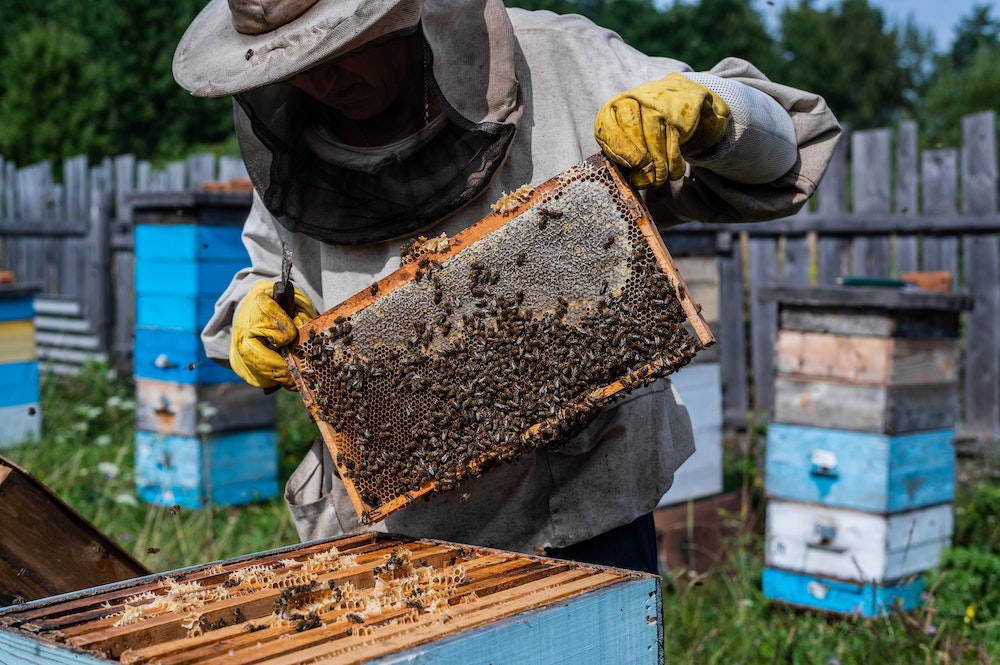How to Start a Successful Urban Beekeeping Project in the UK?

In the bustling city landscapes of London and the UK, an unexpected movement is taking flight. Amidst the concrete and glass, a sweet endeavour is buzzing with life. We’re talking about urban beekeeping, the practice of raising bees in a city setting. This fascinating endeavor is not only a hobby but also a way to contribute to the environment and foster social connections. Let’s delve deeper into this topic and help you understand how you can start your own successful urban beekeeping project in the UK.
The Buzz about Bees
Before we start discussing the logistics of setting up a beekeeping project, let’s first take a moment to understand why bees matter. You’ve probably heard it before—bees are crucial to our ecosystems. But do you really comprehend their role?
Lire également : How to maintain and clean porcelain stoneware tiles
Bees are the world’s most important pollinators of food crops. It’s estimated that one-third of the food that we consume each day relies on pollination mainly by bees. However, the bee population has been declining over the years, posing a significant threat to our food production.
Urban beekeeping can play a vital part in stemming this decline. By providing safe, pesticide-free environments for bees to thrive, you will be directly contributing to the preservation of these important creatures. Moreover, bees produce honey—a delicious, natural sweetener that has been used by humans for thousands of years. Selling the honey harvested from your hives can become a profitable side business.
A voir aussi : Uncover amazing surprises with the goated mystery box
Getting Started with Urban Beekeeping
Starting your own urban beekeeping project is not as daunting as it might sound. Like any endeavor, it requires a bit of research, planning, and preparation. The first step is to educate yourself about the life and work of bees.
Look for beekeeping classes in your area or online, where you can learn about the biology of bees, the structure of a hive, and the basics of beekeeping. You will also need to be aware of the local laws and regulations about beekeeping in your specific area.
Sourcing your bees could be your next step. You can purchase bees online or locally, usually as a package or a nucleus. Keep in mind that bees need to be ordered in advance, usually early in the year.
Setting Up Your Hive
The choice of your hive is a vital decision in your beekeeping project. There are several types of hives available, each with its own pros and cons. The most common types are Langstroth hives, top bar hives, and Warre hives.
A Langstroth hive is the most common type used worldwide. It has rectangular frames for the bees to build their comb, making honey extraction easier. Top bar hives are simpler and cheaper but require more regular inspection. Warre hives, on the other hand, are designed to mimic the natural conditions inside a hollow tree, a favored nesting site for bees.
Once you have your hive, you need to decide where to place it. It should be in a spot that’s easily accessible for you but not in the way of pedestrian traffic or pets. Keep in mind that bees need a clear flight path to and from the hive.
The Role of the Urban Beekeeper
As a beekeeper, your primary role will be to monitor the health and progress of your hive. This will involve regular inspections to check for signs of disease or parasites, and to ensure that the hive has enough food and is producing honey.
It’s also your responsibility to ensure that your bees are not posing a nuisance or risk to others. This includes managing their flight path and behavior, and possibly requeening the hive if the bees become aggressive.
Urban beekeeping is also about community. Many urban beekeepers find that their hives become a source of interest and education for their neighborhoods. You might find yourself giving impromptu lessons on bee biology or even starting a local bee club. The social aspect of urban beekeeping can be as rewarding as the honey.
Harvesting and Selling Your Honey
After a season of diligent work, the time will come when you can harvest the fruits of your (and the bees’) labor. The honey extraction process will depend on the type of hive you have. It can be as simple as turning a tap or might involve removing the frames and using a special extractor.
Once you have your honey, you can use it for your own consumption or sell it. Local food markets, online platforms, and even some grocery stores are potential outlets for your honey. Remember, urban honey is a unique product—the variety of plants in the city can give it a unique flavor profile that can’t be replicated by rural honey.
You’ve now started your journey into urban beekeeping. It’s an endeavor that requires commitment and care, but the rewards—both sweet and social—are worth every bit of effort. So, take up the challenge and join the urban beekeepers in making our cities a little greener, our food a little tastier, and our world a little better.
Solitary vs Honey Bees: Choosing The Right Bees For Your Project
Urban beekeeping in the UK does not only revolve around honey bees. There’s a buzz about solitary bees too, namely mason bees and leafcutter bees. Unlike honey bees, which live together in a hive, solitary bees live alone. This means they do not produce honey, but their pollination services are remarkably efficient. It is estimated that one mason bee can do the work of 100 honey bees!
By incorporating solitary bees into your beekeeping project, you’re adding another layer of environmental contribution. Helping solitary bees can improve biodiversity, increase fruit and vegetable yields in local gardens, and provide educational opportunities about the importance of pollinators.
If you’re looking to make money beekeeping, honey bees are your best bet. A single hive can produce 25-50 pounds of honey per year, and that’s not counting other bee products such as beeswax, propolis, and royal jelly. Selling honey and beeswax candles can be a great way to fund your beekeeping project and even make a profit.
Whether you choose to keep honey bees, solitary bees, or a mix of both, be sure to source your bees responsibly. Reach out to a local beekeepers association for advice or reputable suppliers. Remember, the health and happiness of your bees will directly impact the success of your project.
Managing Your Beekeeping Project Full Time
Urban beekeeping is not just a hobby—it can also become a full time job. From setting up and maintaining the number of hives, through to monitoring the queen bee, to selling bee products, there’s plenty to keep you busy.
However, don’t be put off by the workload. Many beekeepers find that caring for their bees is incredibly rewarding. There’s something special about watching your bees flourish, knowing that you’re playing a part in supporting these vital pollinators.
It’s important to keep a record of your beekeeping operations. This could include the health of your bees, honey production, and any issues or challenges you encounter. This will not only help you keep track of your progress, but it could also provide valuable data for other urban beekeepers.
Finally, don’t forget to share your journey. Whether it’s through social media, a blog, or in person, educating others about the benefits of urban beekeeping can help spread the word and encourage more people to start their own beekeeping projects.
Conclusion: The Sweet Success of Urban Beekeeping
The growing popularity of urban beekeeping in the UK is a testament to the resilience and adaptability of both bees and beekeepers. Amidst the hustle and bustle of city life, bees continue to thrive, providing invaluable pollination services and creating delicious, unique honey.
Starting your own urban beekeeping project may seem challenging at first, but with the right knowledge, dedication, and a love for bees, it can become a rewarding endeavor. Whether you’re hoping to make a difference in your local environment, create a profitable business, or simply enjoy the fascinating world of bees, urban beekeeping has something for everyone.
So why not take the plunge and join the growing ranks of urban beekeepers? It could be the sweetest decision you ever make.
